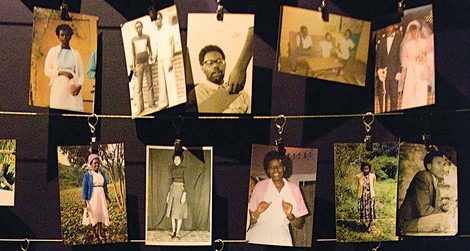Your podcast discovery platform
Curious minds select the most fascinating podcasts from around the world. Discover hand-piqd audio recommendations on your favorite topics.

piqer for: Global finds Health and Sanity Doing Good
Bangalore-based Rashmi Vasudeva's journalism has appeared in many Indian and international publications over the past decade. A features writer with over nine years of experience heading a health and fitness supplement in a mainstream Indian newspaper, her niche areas include health, wellness, fitness, food, nutrition and Indian classical Arts.
Her articles have appeared in various publications including Mint-Wall Street Journal, The Hindu, Deccan Herald (mainstream South Indian newspaper), Smart Life (Health magazine from the Malayala Manorama Group of publications), YourStory (India's media technology platform for entrepreneurs), Avantika (a noir arts and theatre magazine), ZDF (a German public broadcasting company) and others.
In 2006, she was awarded the British Print-Chevening scholarship to pursue a short-term course in new-age journalism at the University of Westminster, U.K. With a double Masters in Globalisation and Media Studies from Aarhus Universitet (Denmark), University of Amsterdam and Swansea University in Wales, U.K., she has also dabbled in academics, travel writing and socio-cultural studies. Mother to a frisky toddler, she hums 'wheels on the bus' while working and keeps a beady eye on the aforementioned toddler's antics.
Nobody Is Blind: New Research On Genocide Suggests People Know What They Are Doing
The first thing genocide-watch websites tell you is to be wary of your neighbours. They are the ones most likely to come for you; and it can happen faster than you can spell cohabitation.
What prompts these sudden and brutal hostilities? How do neighbours, friends and co-workers become so deadly to each other? Why do people willingly commit unspeakable atrocities against people they know and perhaps like?
A group of researchers led by Hollie Nyseth Brehm of Ohio State University are now studying the infamous Rwandan genocide and unearthing curious answers to these questions. These researchers are at an advantage as there is extensive data on victims and perpetrators of the Rwandan genocide — data that has potential to unravel the whys and hows of mass killings at the ground level.
Often, genocide studies neatly divide offenders into people in authority and ordinary folks who are obedient to those in power and “follow orders blindly” out of a common hatred for the supposed enemy. But the Rwandan data has a different story to tell.
Brehm's findings seem to suggest that an ordinary individual participates in a genocide not blindly but due to many personal and social factors. This goes against the popular notion that “there are no individual differences in genocide participation.”
Motivations could range from taking away a neighbour's possessions to living in high-violence areas to having family members who have already committed murders. In interviews, perpetrators listed a variety of reasons for joining the killing spree — long-festering hatred of Tutsis, need to protect one's family, desire for a neighbour's property, wanting to be part of a 'popular cause', etc. Clearly, none of this sounds like blind obedience to authority.
The article continues to explore other studies on genocide and extrapolates them with these recent findings. The result is an intriguing and worrying pastiche of motives. This, as the author says, only make genocides all the more horrifying.
